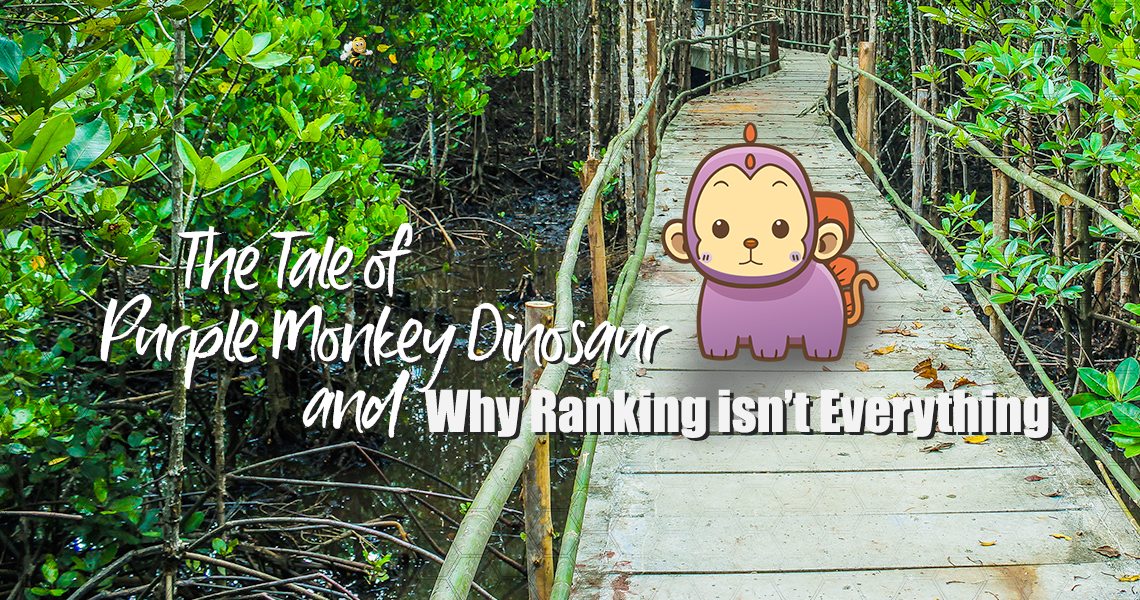The Tale of Purple Monkey Dinosaur
→Read Now: How Google Ranks Websites
Questions to Ask to See if a Keyword Has Value:
How many monthly searches are done for this keyword?
Seems obvious, but it's important to know how frequently people are actively searching for what you want to rank for. Having a keyword with a low amount of searches isn't necessarily a bad thing, but it will make it a lot harder to see steady business.
→Read Now: How to Do Keyword Research (And Why It Matters)
How relevant is the keyword to your services, really?
Many business owners have an inclination to want to rank for every possible keyword, no matter how loosely related to their business. But when a keyword is so nebulous, are the leads really going to have value? If you sell mattresses and rank for "bedsheets," you're going to end up having a lot of visitors bounce off from your site once they realize you don't exactly sell what they need.
What's the competition like?
As much as we all would love to rank for those high-profile keywords in our industry, realistically that's not always possible. If your desired keyword pulls up a front page of Target, Amazon and other massive retailers with no local presence, it's going to be impossible to compete unless you have Target's advertising budget.
How specific is it?
In the old days of SEO, it was more important to rank for short, to-the-point keywords. But in today's age where Google has gone through several updates, long-tail keywords and a top focus are often more effective. Long tail keywords are longer, more specific phrases. An example is "affordable web design Minneapolis" versus "web design." Topic focus is focusing on the topic of your page/blog and letting the keywords flow from there.
→Read Now: Why You Should Use Topics, Not Keywords
Asking yourself these questions will help your keyword avoid the fate of Purple Monkey Dinosaur - and bring you value.
Free Guide: Beginner's Guide to Digital Marketing
This in-depth covers everything you need to know to get started with effective digital marketing
What exactly digital marketing is and how it works.
Explore a step-by-step process for running an digital marketing campaign in today’s competitive business landscape.
Best practices for your digital marketing strategy
We walk through how to implement a strategy using digital marketing, email, SEO, social media and online advertising.
How to measure the impact and ROI of your strategy
Make insights-driven business decisions and confidently present the value and impact of marketing efforts in support of top-level business objectives.
BizzyWeb is a Minneapolis-based digital marketing and web design agency that helps companies get the high-quality leads they need to grow and thrive. Our tactics include inbound marketing, SEO, advertising, web design, content creation and sales automation. We are an accredited HubSpot Platinum Partner and we offer full-service HubSpot onboarding, enablement and strategy for new and current users.






